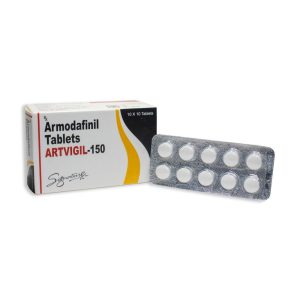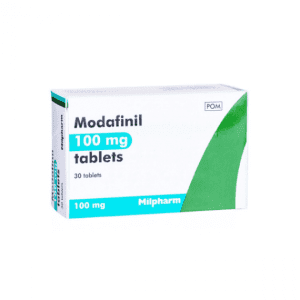Showing all 2 results
With the surge of students labeled with learning disabilities and the increasing notoriety surrounding mental health, it’s crucial to shed light on a commonly encountered disorder – Attention Deficit/Hyperactivity Disorder (ADHD). ADHD often presents a myriad of challenges for children and adults alike, but by understanding and giving it the right attention, managing ADHD becomes less daunting.
Itmanifests as forgetfulness, distractions, and neglecting tasks. On the other hand, hyperactivity and impulsivity are displayed through excessive movement, quick decision-making without much thought, and deficits in delaying instant rewards, causing trouble in maintaining balance, especially at work or school.
What is ADHD?
ADHD stands for Attention Deficit Hyperactivity Disorder. It’s a neurodevelopmental disorder that can affect both children and adults. People living with ADHD often hyperactive and have difficulty paying attention, controlling behavior, or are excessively active, which can significantly impact their lives, including their relationships, academic performance, or work productivity.
What causes ADHD?
Despite decades of research, the exact cause of ADHD remains unknown. However, scientists believe it’s likely caused by an interaction of several factors. These include genetics – as it commonly runs in families; environmental factors – for instance, exposure to lead or maternal smoking and drinking during pregnancy; and problems with the central nervous system at key moments in development.
What is ADHD medication?
ADHD medication is specifically formulated to interact with the brain’s chemistry to help regulate and normalize traits of ADHD, such as impulsivity, hyperfocus, lack of attention, and restlessness. These medications fall broadly into two categories: Stimulants and Non-Stimulants.
On a cellular level, ADHD medications work by increasing the availability of certain neurotransmitters — chemicals that transmit signals between nerve cells in the brain. These neurotransmitters, primarily dopamine and norepinephrine, play key roles in attention, focus, and impulse control.
Which ADHD medications are there?
The majority of ADHD medications fall into the stimulant category. They are known to be highly effective, improving symptoms in 70% to 80% of the patients. These drugs prompt the brain to increase dopamine and norepinephrine production, thereby improving focus and attention while reducing impulsive and hyperactive behaviors.
Two main types of stimulant medications exist:
- **Methylphenidates**: These include medications such as Ritalin, Concerta, and Daytrana. Methylphenidates block the reuptake of dopamine and norepinephrine, increasing their concentration in the synaptic gap and enhancing neurotransmission.
- **Amphetamines**: Examples include Adderall, Evekeo, and Vyvanse. Amphetamines stimulate the release of stored dopamine and norepinephrine while simultaneously blocking their reuptake.
Although stimulant medications are often first-line treatments for ADHD, not everyone can tolerate them or experiences significant improvements. In these cases, non-stimulant medications serve as an effective alternative.
- **Atomoxetine (Strattera)**: This medication works by selectively inhibiting the reuptake of norepinephrine, a neurotransmitter essential for maintaining attention span and regulating impulse control.
- **Guanfacine (Intuniv)** and **Clonidine (Kapvay)**: These work by stimulating brain receptors for norepinephrine, thereby aiding in impulse control and reducing hyperactivity.
How do ADHD medications work?
ADHD medications work in the brain to improve core ADHD symptoms. They raise the levels of certain neurotransmitters and improve communication between different regions of the brain. Stimulant drugs generate an increase in the production of dopamine and norepinephrine, strengthening the communication between brain cells and supporting focus and attention.
The non-stimulants take a slightly different approach by maintaining higher levels of neurotransmitters outside the brain cells and encouraging the brain’s neurons to improve self-control and reduce impulsiveness.
Purchasing ADHD medication online is a convenient approach that is swiftly gaining traction globally, considering the evolving needs and demands of our modern world. This guide aims to provide patients detailed constructs on how to procure ADHD medications safely and effectively from our online pharmacy.
Why buy ADHD medications online?
Utilizing an online pharmacy like ours presents several advantages. Not only are you afforded the convenience of ordering from your home or while on the move, but you also enjoy price comparisons with a wide range of products. In addition, our online pharmacy ensures your privacy, quick delivery and accessibility around the clock.
Our online pharmacy is reputable and is under the jurisdiction of licensing and regulatory bodies. We provide quality ADHD medications that are FDA-approved and follow safe dispensation practices. Browse through our selection of ADHD medications, choose the correct one as indicated on your prescription, and add it to your cart. Ensure that the medication’s name and the dosage matches what’s on your prescription. Follow the prompts to go to your cart and complete the checkout process. We accept multiple payment methods and our platform uses top-tier encryption software, ensuring the safety and security of your transaction. After the order has been confirmed and payment made, the final step is delivery. The packaging is discreet, maintaining your privacy, and the delivery timeline is communicated during the checkout process.
Why choose us to buy ADHD medications?
Trust, reliability, and convenience are integral to our service. With a wide assortment of FDA-approved ADHD medications, we offer patients a hassle-free platform that ensures privacy and offers exceptional customer support. We adhere to a stringent verification process, reassuring you of our commitment to safety and efficacy. Remember, the use of ADHD medication should always be under the guidance of a healthcare provider. It is critical to use these medications responsibly to avoid potential misuse. Avail of our reliable online services for a safe, convenient, and responsible approach to managing ADHD.

